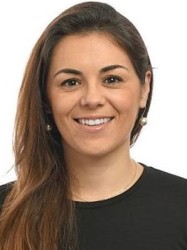BibTex format
@article{Joura:2019:10.1016/j.ejca.2019.04.032,
author = {Joura, EA and Kyrgiou, M and Bosch, FX and Kesic, V and Niemenen, P and Redman, CWE and Gultekin, M},
doi = {10.1016/j.ejca.2019.04.032},
journal = {European Journal of Cancer Care},
pages = {21--26},
title = {Human papillomavirus vaccination: The ESGO-EFC position paper of the European society of Gynaecologic Oncology and the European Federation for colposcopy},
url = {http://dx.doi.org/10.1016/j.ejca.2019.04.032},
volume = {116},
year = {2019}
}

